Dear WinkWorld Readers, as you can guess, I am posting this for the teachers in my class, but any of you are free to watch and enjoy, too…..
Teachers, here are some questions you might like to focus on as you watch: How are language acquisition and literacy alike? What is the role of communication? What does this have to do with Cosmo, the Parrot?
Many thanks to Deb Harrison for alerting me to this golden nugget.
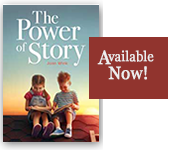
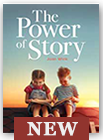
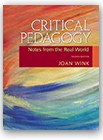
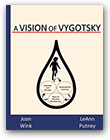

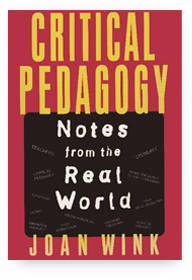

at 5:57 pm
Love this video
at 6:11 pm
Me, too!
at 1:12 am
It is so good to hear the ideas that Krashen states as truths to education. Communication is the key and comprehensible input with a low affective filter pull all the learning together in the fields of bilingual education, language arts, literacy, foreign language, and language acquisition. I love what he says about free reading, again I guess this is why I choose to read and write with my students rather than do so many short, skilled based worksheets day after day. I agree that sustained silent reading is so important, we do it every day of school. I also love what he says about testing- so overdone, and what does it tell us? Do the results tell us what books kids enjoy, does it show us their thinking, or how they felt about what they read or wrote about?
Poverty is such a big issue and of course the negative aspects of it are dire with our students’ successes. Of course, all students need their basic needs fulfilled- food, shelter, books, and love! Also, a kind and supportive school-home relationship is also paramount. I love how he said that the idea of schools failing is an “invented problem” I think that is so true. I see teachers working harder than ever to help students succeed. The point about how testing will make our students ready for the future, well, I agree with Krashen, that the future is not here yet and what we can do with schools is ALLOW students to find interests, excel at them, and take those talents and gifts into the future. That sounds better to me than taking a test score into the future. Great video, and I appreciate his words and thoughts as a teacher who fights to do what is right, helpful and makes sense for my students.
at 4:08 am
According to Merriam-Webster, communication is the exchanging of ideas. When you think of literacy and education, everything we teach is communication. As teachers, we are always teaching vocabulary, grammar and leading by example. Krashen says communication is all forms of reading, learning and acquiring language skills whether to bilinguals or foreign language students. Although the focus of this class has been teaching the English language to students as a second language, there is no difference between ELLs, slower learners, poverty students and even the “average” or accelerated learners, because no two students are alike. Teaching content with meaning and comprehensible input will benefit all students.
at 7:29 pm
Language is a language is a language. It doesn’t matter if you are a human or animal, although we may understand more about human language development, the need is for comprehensible input and context for communication. As Steve talked about Cosmo the Parrot my mind wandered to Washoe. I read Next of Kin: My Conversations with Chimpanzees in an undergraduate anthropology class and it has stuck with me, to the point where I recommend it to others to read for enjoyment. When Steve said her name I was elated! Steve also drives home the importance of mitigating poverty and influence that meeting basic needs, including love & affection can have on language and thus communication. I feel like the need for us in assisting our learners is, maybe, not to completely understand language acquisition in terms, but rather to understand what they need to have to be able to acquire in the first place.
at 10:57 pm
The field of teaching is all about communication. No matter what language you speak or what subject you are teaching, communication is what we are teaching. As a music teacher, I love this because I think so much can be communicated through music. Krashen’s statement that the most powerful ways to communicate are through reading and comprehensible input is something every educator must keep in mind. Literacy, books, and reading are such a powerful way to communicate with students, as long as the content is meaningful and the student can connect with it.
at 12:30 am
I loved how Krashen but everything into perspective. In order for comprehensible output to occur our students need ample opportunities to read. This does not include grammar or explicit teaching of skills but “actual independent reading”.
Unfortunately, education has stayed stationary in the old beliefs system where explicit instruction is the only way to teach our students. Our government has invented a problem stating that our students will flourish with a national curriculum being implemented. This is not true. Instead of over testing we need to protect our students (children) against poverty. Children are struggling with learning because they are hungry, sick, and they have a huge lack of access to literature. It is never too late to educate our children. We need not blame our teachers but the system. School should be a place of learning and enjoyment but for many it is a place to receive essentials for daily function. Save our students from poverty, save their education. Wow, that is a lot to chew on!
at 2:00 am
Language is infinite. There is no way to possibly memorize all of the possible combinations of even just one language. Each word can diverge into a thousand fractals and disperse yet further. I say this to reiterate the point Krashen makes that language learning happens naturally through communication. As I reflect on bilingual education, I am reminded by this video that the learning process must happen through communication and not necessarily explicit instruction of grammatical rules. We can memorize verb conjugations, vocabulary, and structures, but it will not get us very far in everyday interactions. The same holds true for foreign language learning and language arts. Since reading is a form of communication-with the author and with the broader social context-it makes a lot of sense that free reading is so impactful in language acquisition among other things.
at 3:06 am
Reading, communication and comprehensible input go hand in hand. Krashen states that his research has shown that getting students to read is the most powerful tool that we can give our students. Krashen explained that almost all studies or tests show higher scores if we can get books in the hands of our students and get them reading. Poverty is the greatest factor regarding how well students will perform. All factors of poverty affect the students. Some of these are more obvious, such as health care and nutrition. But another factor that plays into poverty is again getting books in the hands of the students. And I feel as thought through this video he is trying to stress to us that it should be our goal as teachers to provide our students with as many tools and skills as possible to help them communicate successfully.
at 3:10 am
I had a few different thoughts. If the focus of this assignment is about how literacy and language acquisition are joined by the idea of communication, then I heard what he said about 1st and 2nd language learning being on the same logical level. Also, some thoughts on testing. The firefighter analogy was interesting. It made me wonder about how this guy might respond to the Praxis tests that teachers can take to get certified in different content areas. The poverty issue does not have an easy solution. And finally, I want to meet a talking parrot, communicate with aliens telepathically, and write letters to star trek writers.
at 3:32 am
It is interesting to hear about Krashen’s opinion on his feelings regarding the trend to create national, standardized curriculum and the current “failing” statuses of schools. I agree with Krashen on the role of poverty in the impact of student success in school. It is such a struggle on how many individuals have a role in deciding out the outcome of our classrooms when they have never set foot into a classroom or have experience working with student. It would be the same role change if we were to decide the outcome of how medical procedures should be done with no medical training or experience. Education experience is essential to understand the impact some of these large decisions may have on educators and students.
at 4:13 am
My co-teacher and I have frequently have the conversation regarding students are the amount of time they are spending with eyes on text! Yes we pull them and work on skill deficits, which includes reading, however it is not always reading a flowing story. Its more like reading a short story or passage and working on decoding strategies, phonics, comprehension etc… I am trying to incorporate more “reading” time in my groups. I have also spoken with her about SSR. I really wish we would have 10-15 minutes of SSR sometime during the day even if we just read aloud to the students, but like everything were is there time in the schedule for that with all of the “content” we are teaching for testing? Krashen confirms our suspicions we have had all along about people in charge not having experience in education! To solve poverty is to solve problems in education! Yes! But this is going to take more the food, and shelter. I refer back to Jim Trulese and his “The Read Along Handbook” it is going to take a national champagne raising parental awareness about the importance of showing love, affection, reading aloud and having real conversations with their children at young ages to improve vocabulary along with adequate food and shelter to improve education. I think the story about Cosmo is amazing and supports the idea that conversation/
communication, love on many different levels, and affection are key to being successful at anything including language acquisition and education. Even if it is “care taker” conversation, it’s a start.
at 4:33 am
Communication is how information is shared and acquired. In the video above Stephen Krashen says that literacy and language acquisition are essentially the same field and that the concepts found within those two fields can be applied to language acquisition, bilingual education, foreign language education, language arts, etc. Learners must have a low affective filter (feel safe and confident in their learning environment), and he also talks about the effect of poverty. Poverty leads to hunger, health problems, insecurity, lack of safety and more. If poverty is the main problem affecting students, providing means to cover students’ essential needs will allow them to enter into a comfortable, safe and loving environment. Once in this type of environment students will be receptive to communication and language acquisition/literacy can occur.
at 4:36 am
This video has so many different avenues to explore on literacy that I found myself re-watching sections over and over to grasp yet another idea. His sense of humor definitely shows as he mentions “the next frontier, and aliens” yet he pulls this together to explain the 1950’s theory on learning language from a Star Trek episode. I love that he wrote a letter to the producers urging them to rethink the use of audio lingual method of language learning to more up-to-date methods. Krashen’s passion for literacy is unmistakable. This lesson asked for connections between communication and literacy, bilingual ed, foreign language, and language acquisition which fits into our T-chart on intentional learning but what happened was I was having incidental learning that is pulling me into a different area. I am so perplexed by the idea that this nation is headed into the “push toward standardization makes it easier to give examinations”. This is troubling to think that the future generation is getting the brunt of testing rather than learning.
at 5:01 am
“Our field is really communication,” Krashen states in the above interview. It seems like such a simple and all- encompassing way to describe teaching but one that I had never really thought of myself. When you think about teaching in the broad sense, everything we teach on a daily basis is about communication. We model for students what appropriate conversation looks and sounds like with peers, we encourage them to read, write, and think deeply, we teach them the “dialogue” of math. All these “communication skills” will help them be successful and independent adults. As Krashen stated we should be teaching students to be passionate problem solvers. Loving what they do and learning what they are good at.
I found Krashen’s comments on sustained silent reading intriguing as I feel in recent years we have moved away from allowing students silent reading time. I remember when I was in elementary school having a whole period of class that was just dedicated to finding a comfortable spot in the room and diving in to our favorite book- no worksheets or graphic organizers to do while we read- no teacher interruption to check our comprehension just reading for enjoyment. I wish that we could get back to this to teach children how to love reading again.
at 5:15 am
Hello, all! I absolutely love Krashen’s sense of humor shown in this video! How refreshing. I found Cosmo’s supposed fluency in English very intriguing and I’m not sure if I’m ready to believe that she understands English itself as much as memorized the vocal responses to situations and questions. It is interesting to note that Krashen mentions the difference between Cosmo and lab parrots to be the LOVE that Cosmo receives. It seems to me that “What’s Love Got to do With It?” and its ideas apply not only to human language acquisition but the animal realm as well. Loving communication is so important in the classroom, but I think Krashen’s explanation of the politics that go into our education policies has a lot to do with communication as well. Washington’s loudest advocates for standardized tests and common core did not know much about real life classrooms. As a nation the USA does not know much about what is taking place in classrooms. From what I’ve read in the news, dialogue has started to repair the damage done by NCLB, but in order for the nation’s opinion to change, educators and advocates will need a lot of loving communication.
at 1:44 am
Communication is key to language. I loved how Krashen brought up aliens and how they are probably going to be communicating with us in a completely different way (telepathically). I also really appreciated the parrot story of Cosmo. It shows that if you communicate long enough with anyone they will understand you and communicate back. It reminded me of my mom’s dog, Max. He will sit on his haunches and wave his front paws at you. You can ask him questions, such as “Do you need to go outside?” “Do you want scratches?” “Do you want a treat?” He will communicate back by waving his arms at you for the action he wants. If you ask him something he doesn’t want he’ll just stand there and look at you. It’s quite comical. However, we are communicating with each other.
I really appreciated that Krashen also brought up what is happening in the United States and the CCSS and its overreaching implications worldwide. I have a hard time with what is happening within the schools right now and how much exploration and free thinking is being hurt by this. One of our upper people in the district even told a teacher that teaching isn’t a democracy and sometimes teachers need to be told what to do. How horrible is this statement? Why are we not allowed to think and question what is happening to us professionally and to the students?
at 3:10 pm
Your responses really give me hope!! Thank you!!!
But guess what: things might get much worse very soon. We thought we had won the testing war, thanks to the national opt-out group’s heroic efforts, but the forces of greed have a sinister plan – competency-based education!!
Here is a letter I sent to the Philadelphia Inquirer:
Coming soon: Much more testing than ever.
Sent to the Philadelphia Inquirer, Feb. 29, 2016
Yes, the opt-out movement has had a real impact, with more and more parents refusing the tests for their children (“As protests rise over high-stakes test, more students likely to opt out,” Feb. 28). And yes, even the President has spoken out about the negative impact of over-testing.
But the testing-industrial complex is striking back: The new plan is to replace end-of-year standardized tests with what could be daily testing. The core of education will consist of module after module of programmed instruction that students will work through online and be tested on, which will drastically diminish the role of teachers and increase profits of technology companies. The new education law announced grants for the development of these teach and test machines (sections 1201 and 1204).
The pro-common core National Governor’s Association admitted that there is little evidence supporting this major shift to what they call “competency-based education,” but nevertheless enthusiastically supports it.
Stephen Krashen
Professor Emeritus
University of Southern California
original article: http://www.philly.com/philly/education/20160228_As_protests_rise_over_high-stakes_tests__more_students_likely_to_opt_out.html
Sources:
National Governor’s Association: “Although an emerging research base suggests that CBE is a promising model, it includes only a few rigorous evaluations and analyses of current and ongoing CBE pilots and similar programs” (p. 6). From: “Expanding Student Success: A Primer on Competency-Based Education from Kindergarten Through Higher Education. http://www.nga.org.
Additional sources:
McDermott, M. 2015a. Reading between The Lines: Obama’s “Testing Action Plan” http://educationalchemy.com/2015/10/25/reading-between-the-lines-obamas-testing-action-plan/
McDermott, M. 2015b. Common core and corporate colonization: the big picture. http://educationalchemy.com/2015/10/30/common-core-and-corporate-colonization-the-big-picture/
Robertson, P. 2015a. U.S. Dept. of Ed. and Educational Warfare. http://www.pegwithpen.com/2015/10/us-dept-of-ed-and-educational-warfare.html
Robertson, P. 2015b. Opt out revolution: the next wave. http://www.pegwithpen.com/2015/10/opt-out-revolution-next-wave.html
Talmage, E. 2015a. Dear Mark. http://emilytalmage.com/2015/11/14/dear-mark/
Talmage, E. 2015b. What is proficiency-based learning? http://emilytalmage.com/2015/04/26/save-maine-schools/
at 1:25 am
Thanks, Steve. Our work is not done.